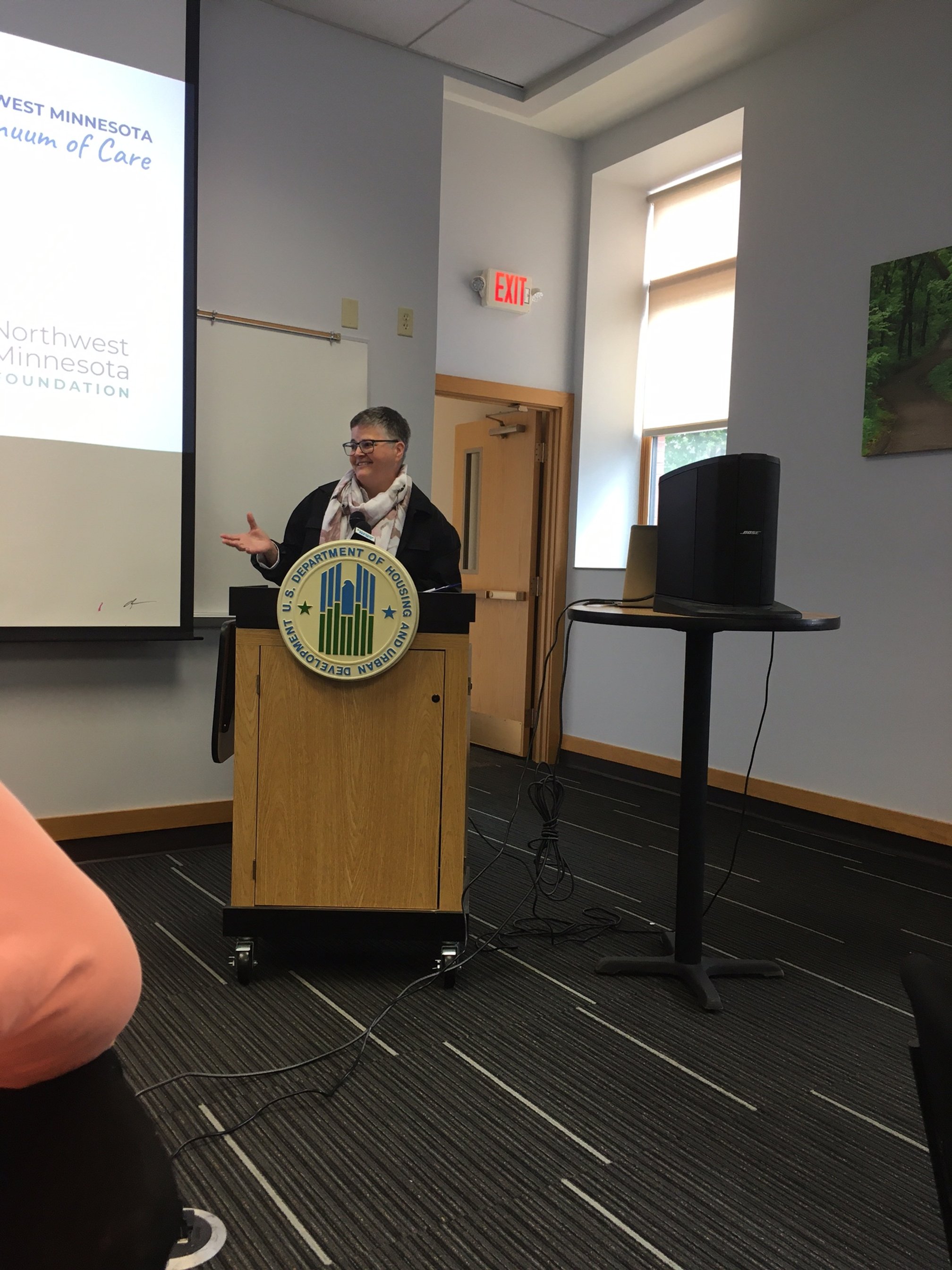About MINNESOTA TRIBAL COLLABORATIVE




The Minnesota Tribal Collaborative is an innovative approach to addressing housing and homelessness of American Indians in Minnesota. In 2014 a Memorandum of Understanding (MOU) was signed by the Tribal Councils of five reservations: Bois Forte, Leech Lake, Mille Lacs, Red Lake and White Earth allowing us to plan together and collectively problem solve. From our inception, the vision of The Collaborative has been to “address historical barriers and unique needs” of Tribal members experiencing housing instability and homelessness through collaboration with one another.
A Brief HistorY
Minnesota Tribal Nations have a long history in efforts to prevent and end homelessness. In 2006, several Minnesota Tribal Nations did a survey of homelessness in conjunction with the triennial Wilder statewide homeless survey. From that data the northern Ojibwe nations decided to write plans to end homelessness. The Reservation homeless survey and the Tribal plans to end homelessness were the first in the nation completed by Tribal Nations.
In early 2014, a group of housing authority and human services staff from several of the Northern Tribes, along with some state staff and non-profit supports, began meeting on a regular basis to learn together
about new resources and share ideas of promising practices for meeting the unique needs of American Indians experiencing homelessness in Minnesota. Around this time, the Minnesota Legislature changed the eligibility for the Long Term Homeless Supportive Services grant and made Tribes eligible applicants for the first time. Per statute a collaborative was needed to apply for these dollars. Through a Memorandum of Understanding approved by the Tribal Councils of all participating Tribal Nations and the Mille Lacs Band Governing Body, five Tribes in Northern Minnesota (Bois Forte Band of Chippewa, Leech Lake Band of Ojibwe, Mille Lacs Band of Ojibwe, Red Lake Nation, and White Earth Nation) formed a collaborative to prevent and end homelessness.
Honoring Sovereignty, Addressing Disparity
Prior to the existence of the Collaborative, tribes frequently were competing against each other for funding and were reliant on non-tribal entities, such as county government or non-profits, for dollars to
address homelessness. Together we are learning about new resources and sharing promising practices that will meet the needs of our communities within our government structures. We are changing the
conversation around ending homelessness for American Indians on reservation and throughout the state. Most importantly, we are working together to bring new resources and connections into our
communities to best serve our band members. By being able to create and plan for programming that meets our community’s specific needs, financial and cultural, we believe we can address the historic
disparities that have existed in Minnesota.
Homelessness including doubling up, substandard housing and overcrowded conditions are a serious and seemingly intractable problem on many Reservations. According to Wilder in 2012, a quarter of single adults experiencing homelessness in Rural Minnesota, excluding reservations, identified as American Indian. In fact, year after year the Wilder Study shows persistent disparities statewide, highlighting that American Indians are disproportionately experiencing homelessness. Without a serious change in direction we believe these disparities will continue.
The Collaborative was formed to continue the work, to apply for funding and create the resources necessary to end homelessness on Reservations and of American Indians throughout Minnesota. Our
Tribal Governments are investing in homelessness with the limited resources we have available. We are leveraging tribal dollars with state and federal funding to have the greatest impact we can. The
Collaborative has created a place for us to learn from one another about practices like third party billing, ARMHS, and Targeted Case Management. We’re currently implementing Long-Term Homeless Support Service dollars and hoping to receive Family Homeless Prevention and Assistance Program dollars. Several of the reservations are exploring Group Residential Housing, HSAMI, Bridges and other resources offered by the state, all to work towards our goals.
